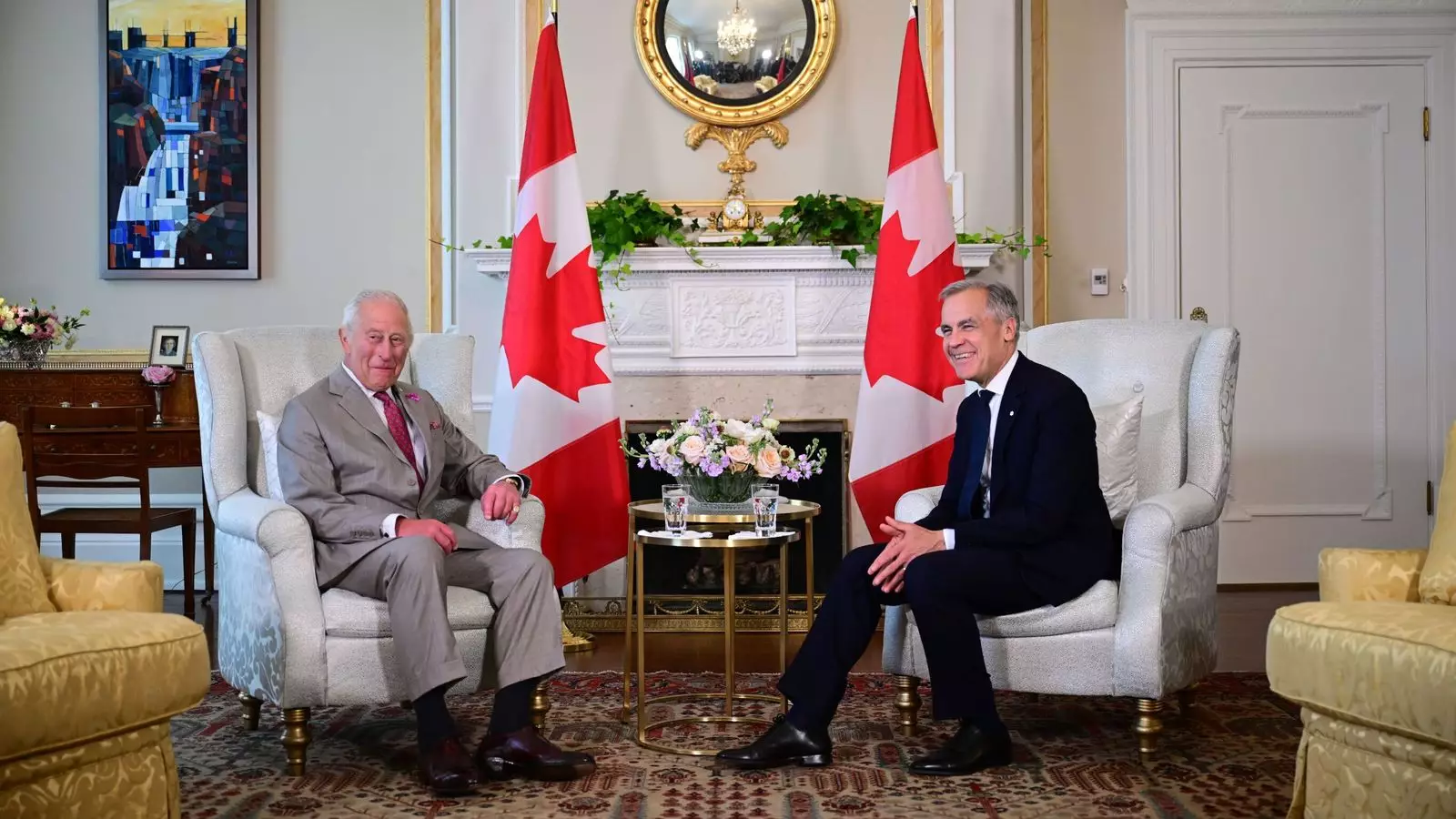As King Charles and Queen Camilla embark on their visit to Canada, a significant tension looms over what should be a celebratory occasion. Campaigners are pressing the royal couple to seek accountability and an apology for the historical abuse suffered by “Home Children,” a term that represents a dark chapter in both British and Canadian history. More than 100,000 of these vulnerable children were sent from the UK to Canada between 1869 and 1948, often under conditions that can only be described as neglectful and abusive. This blatant disregard for the welfare of children should not be overlooked or swept under the carpet during a state visit; it requires urgent attention.
We must acknowledge the gaping chasm between Canada’s image as a progressive nation and the insidious legacy of its treatment of vulnerable children. By failing to apologize, Canada continues to perpetuate a cycle of denial regarding its colonial past. This is not merely about seeking a vocal affirmation of regret; it is about acknowledging the profound trauma endured by a generation of children who were stripped of their dignity, family, and self-worth.
The Home Children’s Unsung Legacy
The term “Home Children” evokes an unsettling reality that history often glosses over. They were not merely impoverished orphans; they were victims of a state-sanctioned program that capitalized on their vulnerability. Sent across the ocean under the guise of a better life, many of these children found themselves toiling as unpaid laborers or domestic servants. Most dishearteningly, countless were subject to inhumane treatment—abuse that would echo through generations.
John Jefkins, whose father was among those sent to Canada, articulates the urgency of this issue. Reflecting on the plight of these children, he states, “It’s something we deserve and it’s really important for the healing process, as well as building awareness of the experience of the Home Children.” The emotional and psychological scars left on these individuals and their descendants are palpable; yet, they remain largely unrecognized in the collective consciousness of Canadians and Britons alike.
This isn’t just a matter of historical inquiry; it’s an ethical imperative. The royal couple has the platform to catalyze change. King Charles, who once acknowledged during a past visit that it’s crucial to reconcile with “the darker and more difficult aspects of the past,” holds in his hands the opportunity to spur a national reflection on these grave injustices.
A Commonwealth Responsibility
Canada proudly positions itself as a global leader in human rights and diversity, yet the lingering shadows of its historical injustices speak to a complex truth. The royal engagement should not merely be ceremonial; it should serve as a forum for genuine reconciliation. The links between the United Kingdom and Canada are robust, grounded in shared history and heritage that cannot be sanitized. The Commonwealth symbolizes not just a network of nations but an obligation to uphold the dignity of every citizen within those borders.
As King Charles meets with the Canadian Prime Minister, discussions surrounding the Home Children must not be overlooked. This moment in history presents an ideal juncture; the monarchy’s role in fostering a new dialogue is critical. In this sense, the demand for an apology transcends individual grievances; it symbolizes an acknowledgment of a collective failure that is long overdue.
The Fight for Memory and Recognition
As we navigate this increasingly interconnected world, we must not forget the narratives that have long been silenced. Would King Charles and Queen Camilla leave behind a legacy of awareness, understanding, and justice, or would they choose to remain entrenched in tradition, overlooking the urgent calls for accountability that echo through the ages? The legacy of the Home Children should not be reduced to mere footnotes in history textbooks; instead, it should serve as a clarion call for future generations.
The government of Canada can express regret for its past actions, yet it also needs to make active strides in recognizing, honoring, and validating the experiences of those who suffered. The royal visit is a chance for that acknowledgment to occur, a chance that mustn’t be squandered. The moral weight lies not just in the words spoken within the walls of Parliament but in the commitment to genuine and lasting change for those who were both born and abandoned to misfortune.
In a world with so much divisiveness, it is time to embrace a path of understanding and atonement. The royal family has the potential to channel their influence for a meaningful cause, igniting a movement that demands recognition where it is painfully due. The question remains: will they take the brave step forward?



Leave a Reply